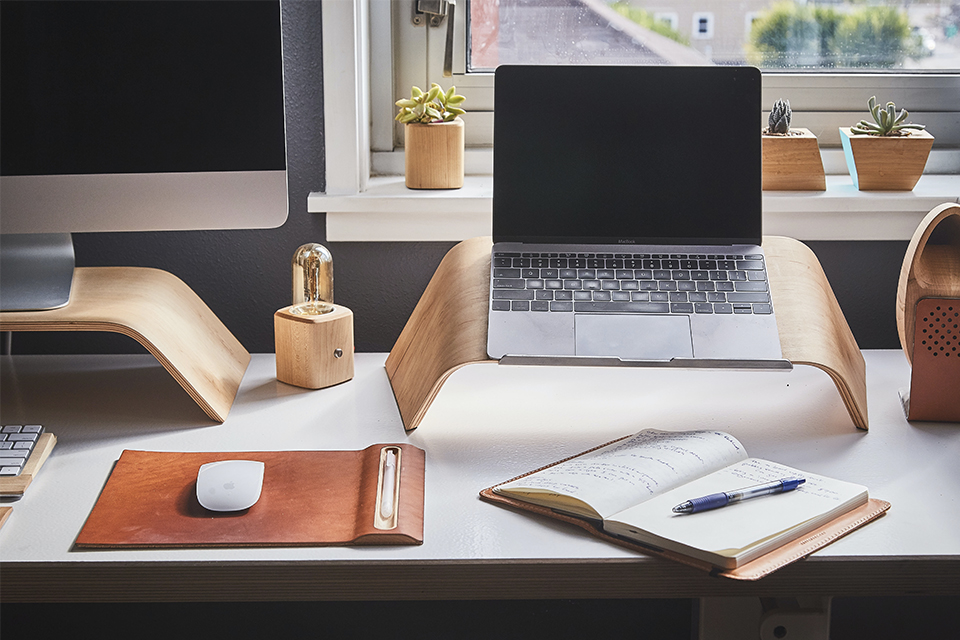In 2018, it was reported that the majority of UK office workers, around 81% in fact, spent between four and nine hours sitting at their desk each day.
That’s a lot of hours racked up in a sedentary position. And when health experts in recent times have attributed prolonged sitting to increased risk of cardiometabolic diseases and premature mortality, it’s vital that we improve our office set-ups when working from home or in the office, yet it’s something that we often overlook.
The effect of a poor office set-up on office workers
DBI Furniture Solutions reveals the truth behind your office-setup both at home and in the office:
- It’s reported that nearly half a million of UK workers suffered from upper limb repetitive strain injury (RSI), and that one in 50 of all UK workers had reported a condition of RSI.
- Poor office lighting, brightness and screen glares have a considerable impact on workers, causing fatigue and discomfort, as the body has to adapt to the contrasting ambience.
- Office workers can also suffer from very poor mental health from bad workplace arrangements.
- Incorrectly adjusted office equipment can lead to blurred vision and severe headaches.
- One of the major factors that contributes to a poor office set-up is a deficient office chair and defective workstation. Poorly fitted office furniture has been known to increase the chances of workers developing musculoskeletal disorders.
Unhealthy working-from-home conditions
As we end a decade and begin a new one with scattered lockdowns, most of us are confined to our homes for work, which unfortunately brings about some uninvited bad habits and working environments.
So, what should you avoid when working from home to maintain a healthy home office set-up?
- Slouching! It’s our home. It’s where we rest and relax. But 2020 turned our homes into mini offices, so that means we really need to unblur the line between home life and work and sit up more. Your posture will thank you for it and you’ll reduce back problems!
- The couch and bed. As tempting as it may be to lie down all day or get cosy on the couch with a laptop, not only does our productivity suffer, but our health does too. Use the kitchen table or home desk to have better eye levels and posture to avoid eye strain, headaches and backaches.
- Procrastination. When in your own home with no eyes over you, procrastination is your biggest enemy. Not only does this affect your work, but it can have a truly negative effect on your mental health. Succumbing to procrastination weighs us down, demotivates us and makes us feel so much worse. Stick to healthy routines, schedules and that all-important, healthy desk or work table!
Use your home to your advantage by taking regular breaks, walking laps around your garden or neighbourhood, as well as using your own kitchen to make save money with homemade meals.
What does a good office set-up look like?
There’s still hope, so don’t worry, here are some tips on how to make your home office set-up better…
Nick Pollitt, Managing Director of DBI Furniture Solutions says: “It’s easier than you think to improve your office set-up. It’s all about posture and making sure you provide correctly levelled office equipment.”
One member of several European committees working on office standards, Jörg Bakschas from Adapt Global Group, also has some helpful advice: “Use your sit-stand desks correctly, don’t just sit all the time and make sure you take regular breaks! Make sure your chair’s mechanism isn’t locked so you can adjust it to a comfortable position – putting you on the correct eye line to your monitor.”
Juachi Ezenwa, Founder of Journey with Ju, concludes that people shouldn’t overlook their mental health: “Making your workspace more ergonomic goes beyond the physical impacts such as your comfort level, positioning of your body, etc. It also applies to the impact your workspace can have on your mental/psychological wellbeing. People often overlook this and focus solely on the physical aspects. There are psychosocial factors (non-physical) such as high workload/work pressure, lack of emotional/social support, that can lead to such as fatigue, stress and burnout.”
Photo by Grovemade on Unsplash.
Since you’re here…
More than 30,000 readers per month enjoy the content we publish on PA Life. PA Life sits right at the heart of the PA and EA community, providing advice, profiles, How To guides, reviews and more.
We’d like you to be part of our community too and you can sign up to the newsletter, which is completely free of charge. As well as two weekly round-ups of the top stories, you will also have access to our bi-monthly magazine.
Click here to sign up to our newsletter.











